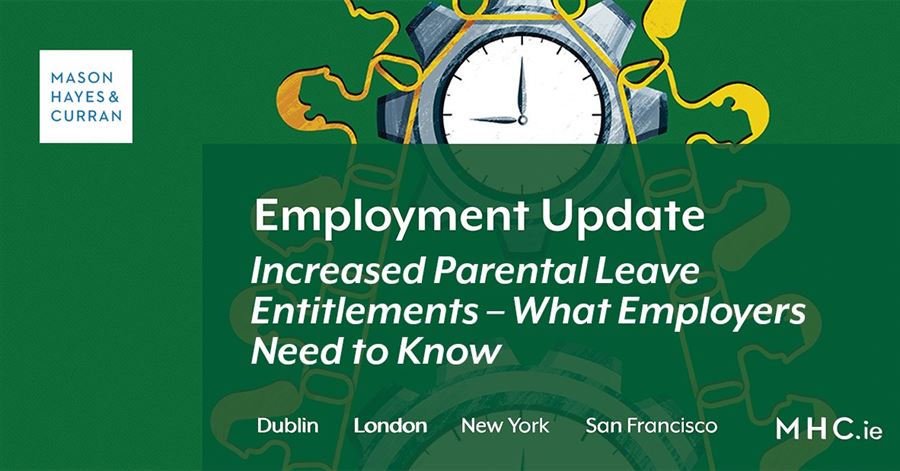Employment Update: Increased Parental Leave Entitlements – What Employers Need to Know

In a recent article, we looked at proposed increases to parental leave entitlements expected this year, and the planned introduction of two weeks’ paid parental leave as part of Budget 2019.
The Parental Leave (Amendment) Act 2019 has now been signed into law and introduces important changes to parental leave.
Currently, the parents of children aged up to 8 years are entitled to 18 weeks of unpaid parental leave for each child. The age is extended from 8 to 16 years if the child has a disability or long-term illness. The same conditions apply for people acting in loco parentis.
Under the new Act, employees in Ireland will be entitled to 22 weeks parental leave from 1 September 2019, an additional 4 weeks on current entitlements. This will then increase a further 4 weeks to 26 weeks from 1 September 2020.
The new Act also increases the maximum age of the child for whom parental leave can be taken, from 8 years to 12 years.
The Act is expected to be commenced by statutory instrument prior to the summer recess.
Parental Benefit
Under the Government’s Parental Leave Scheme, employees will be also able to avail of two week’s paid parental leave benefit during the first 12 months of their baby’s life. This change is to take effect from November 2019.
The Department of Employment Affairs and Social Protection will pay the parental benefit at the same rate as maternity and paternity benefit which is currently €245 per week. Individual employers can decide if they want to “top up” the payment to salary level.
The benefit is a non-transferable ‘use it or lose it’ right, incentivising fathers to avail of this statutory benefit during the first 12 months of their baby’s life. The Government plans to incrementally increase the benefit up to seven weeks by 2021.
Comment
The Parental Leave (Amendment) Act 2019, and the introduction of paid parental benefit, are important changes for employees with families.
Further changes seeking to introduce more flexibility on how parental leave may be taken have also been proposed as part of a new EU Directive on Work-Life Balance, as discussed in another recent article. It is likely we will see more developments in this area in the future.
In the meantime, employers need to prepare for these changes. In particular, employers should consider whether they intend to ‘top-up’ parental leave benefit. They should also consider revising their parental leave policies and procedures to reflect the new changes.
If you would like to discuss the potential impact of this issue on your business, please contact a member of our Employment & Benefits team.
The content of this article is provided for information purposes only and does not constitute legal or other advice.
Share this:



